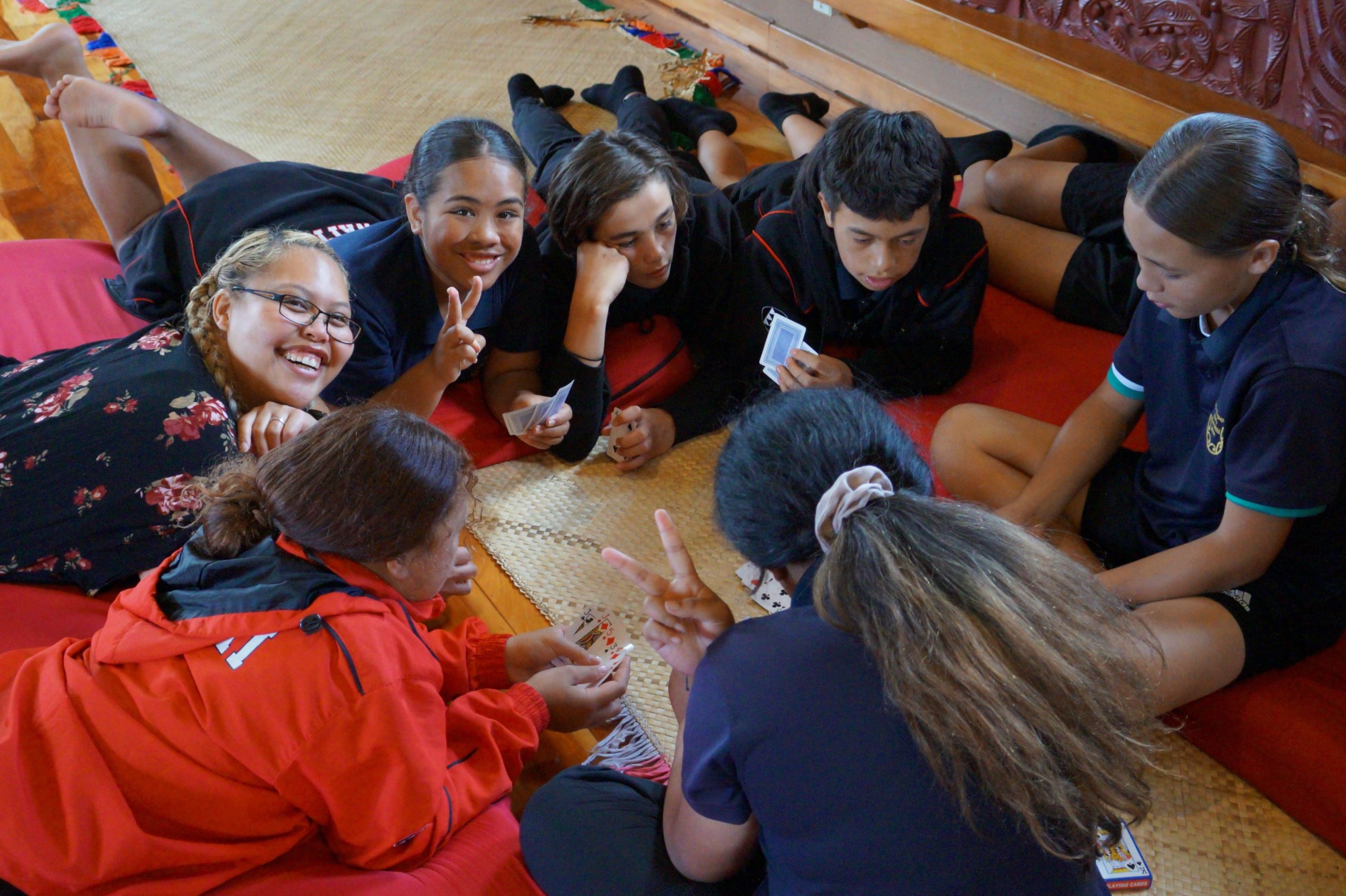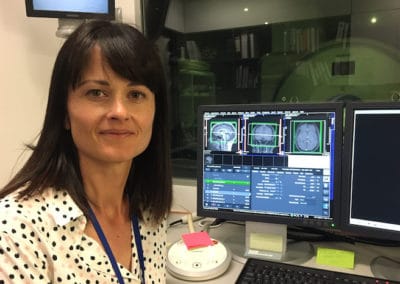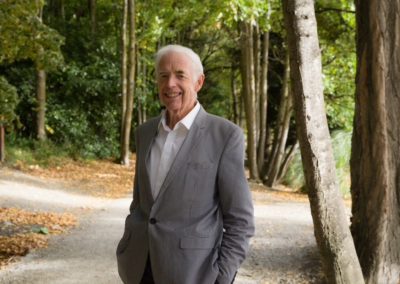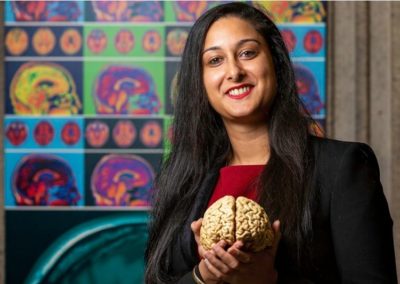The Brain Research New Zealand (BRNZ) outreach calendar is full of exciting events, with one of the highlights being our annual wānanga with our Māori community partners. We have been visiting and working with the tauira (students) and kaiako (teachers) of Te Kura Kaupapa Māori o Hoani Waititi Marae for more than five years. It has been rewarding and encouraging to see our partnership grow stronger and our relationship flourish beyond our wānanga.
This year, we were able to strengthen this partnership by showing students around our neuroscience labs at the University of Auckland, giving them a taste of university life. We also created a video showcasing the relationship between the kura and BRNZ, which aired on Māori TV. Previously, a group of tauira collaborated on a study with Professor Nicola Kayes, looking at how healthcare workers interact with people coping with the consequences of a neurological conditions (see p. 38 of our Annual Report).
After some COVID delays, we finally held our fifth wānanga at Hoani Waititi Marae on November 9. More than 20 members of BRNZ attended the event, including Dr Waiora Port, Co-Chair of the BRNZ Māori Advisory Board; Māori Strategy Leader Dr Hinemoa Elder; staff from the Dementia Prevention Research Clinics; senior researchers; early career researchers and staff from the BRNZ operations team. We met with a big group of tauira from different year groups, supported by their kaiako.
Our annual wānanga are each centred around a different theme— this year, we decided to explore the topic of stress. The tauira and kaiako had some activities for us, devised to push us out of our comfort zone and test our responses to stressful situations. These activities included four-legged races and Pukana, a traditional Māori game which involves a lot of shouting (and stress relief!). Afterwards, the group discussed the causes and manifestations of stress, the biological process behind the sensation, and ways to relieve it.
One of our aims for engaging with the kura is to inspire the students to consider science, health and academia as a career options by showing them how valuable and applicable their insights and knowledge are. At this wānanga, we were lucky to listen to a kōrero by Mariana Te Pou, one of our early career researchers from the University of Otago. She talked about her own study and career pathway into research, investigating Māori perspectives in neurological treatments and neuro-stimulation in treating neurological conditions and traumatic brain injuries. Mariana explained the process of whānau sharing their journey in supporting family members living with neurological conditions. This process includes considering whether treatments are consistent with te ao and tikanga Māori, as well as exploring traditional approaches to brain health. She highlighted that the kōrero of the whānau member is central to and the most important aspect of this research.
Mariana also spoke about another stream of work she does at the University Otago: She coordinates the Science Wānanga, where she gets to connect with Māori communities and work with rangatahi. Mariana hopes to reconnect with some of the students of Hoani Waititi Marae through this role, as two of the tauira have just been accepted into the University of Otago Science Academy 2021. One of them is interested in paediatrics, while the other one plans to study sports and exercise science. Listening to these rangatahi talk about their plans for the future was incredibly inspiring. We know that one day, they will make a big difference to their community, no matter where their path takes them. We are incredibly proud to have played a tiny part in it.



